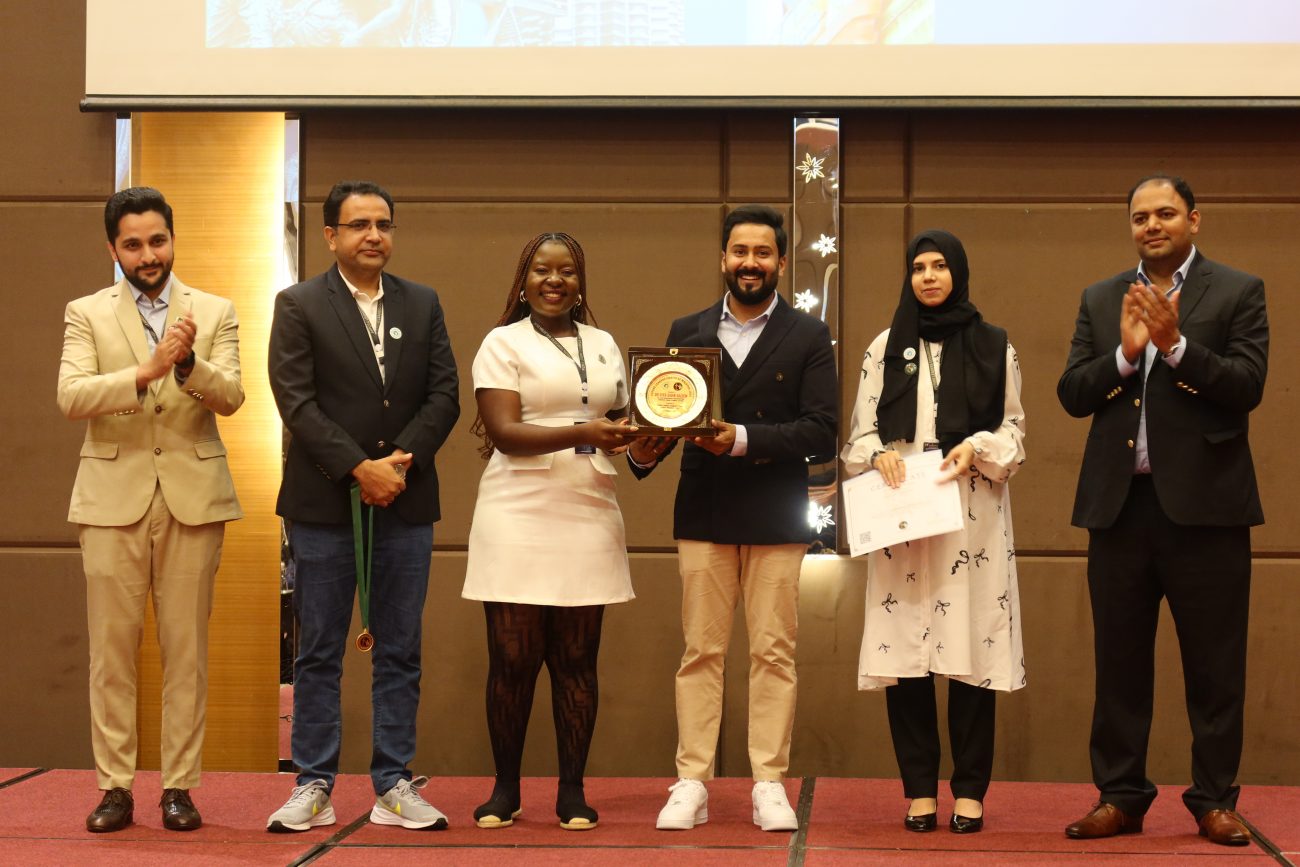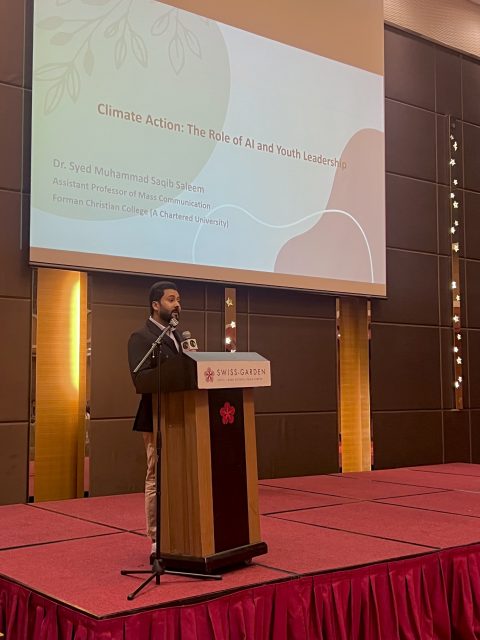
By Dr Syed M. Saqib, Department of Mass Communication, Forman Christian College, University, member of the MediaClimate Network
On 2nd November 2024, I had the privilege of participating as a trainer at the Youth Future Leaders Congress in Malaysia. This significant event, organized jointly by Teaching Pakistan, brought together passionate young leaders from various parts of the world, creating a truly global platform for discussions on climate action, innovation, and leadership.

My training session, titled “Climate Action: The Role of AI and Youth Leadership,” was designed to empower youth with the knowledge and tools to tackle climate crises effectively using Artificial Intelligence (AI). The session covered essential topics, including the climate crisis’s most pressing issues, such as rising global temperatures, severe weather events, melting ice caps, sea-level rise, deforestation, biodiversity loss, and air pollution. We discussed why these issues matter to youth and how they can leverage their creativity, digital fluency, and passion for impactful climate action.
Highlighting the critical role of young leaders in climate advocacy, I shared examples of how youth have historically driven movements and mobilized communities, underscoring their unique energy and leadership potential. We explored how AI is revolutionizing climate action with tools like real-time environmental monitoring, predictive analytics for extreme weather, renewable energy optimization, and waste management.
 One of the most engaging parts of the session was an interactive group project where participants incorporated existing AI tools into their climate activism initiatives. Each team addressed specific climate challenges and considered how AI tools could be integrated for climate action, mitigation, and adaptation. For instance, some groups proposed using IBM’s Green Horizon predictive analytics to forecast air quality and help local governments implement timely pollution control measures. Others incorporated DeepMind’s AI for energy efficiency, which has been used in data centers, to suggest ways local businesses could reduce energy consumption. A few teams also utilized Global Forest Watch, an AI tool that monitors deforestation in real-time, to create awareness campaigns for forest conservation in vulnerable areas.
One of the most engaging parts of the session was an interactive group project where participants incorporated existing AI tools into their climate activism initiatives. Each team addressed specific climate challenges and considered how AI tools could be integrated for climate action, mitigation, and adaptation. For instance, some groups proposed using IBM’s Green Horizon predictive analytics to forecast air quality and help local governments implement timely pollution control measures. Others incorporated DeepMind’s AI for energy efficiency, which has been used in data centers, to suggest ways local businesses could reduce energy consumption. A few teams also utilized Global Forest Watch, an AI tool that monitors deforestation in real-time, to create awareness campaigns for forest conservation in vulnerable areas.
 These examples highlight the creativity and strategic thinking of the participants, who demonstrated how established AI tools can play a critical role in tackling climate issues. This exercise provided practical knowledge on integrating technology into environmental initiatives, offering participants a deeper understanding of AI’s potential in climate action.
These examples highlight the creativity and strategic thinking of the participants, who demonstrated how established AI tools can play a critical role in tackling climate issues. This exercise provided practical knowledge on integrating technology into environmental initiatives, offering participants a deeper understanding of AI’s potential in climate action.
The Congress concluded with participants presenting their project ideas, blending visionary thought with practical strategies for real-world impact. Observing these young leaders’ commitment and innovation was truly inspiring, and their passion for actionable change was both energizing and motivating. Meeting these youth participants reaffirmed for me the power of youth-led initiatives to tackle global challenges through technology and collaborative action.
My heartfelt thanks go to Teaching Pakistan, for organizing such a meaningful event that fosters collaboration and learning among the climate champions of tomorrow. With the skills and insights gained, these young leaders are well-positioned to leverage their knowledge in creating a sustainable and resilient future.